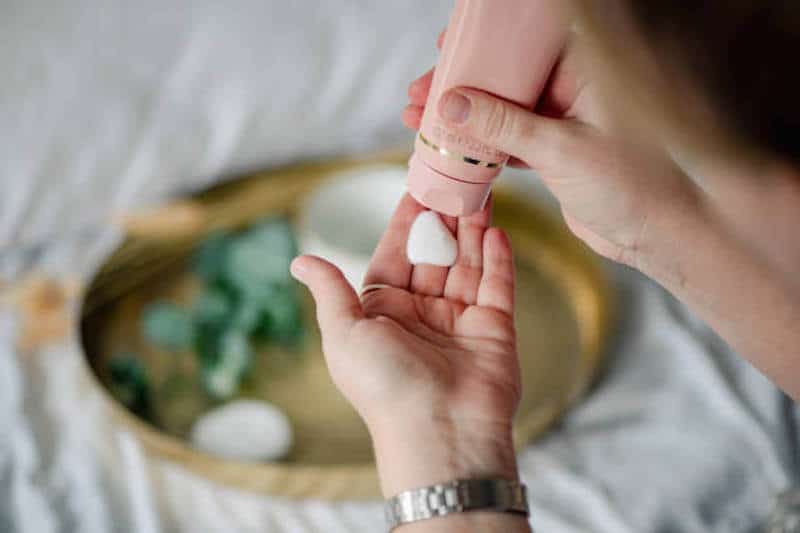Newborn Skin Care Basics: Keeping Your Baby’s Skin Healthy And Soft
Congratulations on your new bundle of joy! As a new parent, you want to do everything in your power to keep your baby safe and healthy.
One important aspect of baby care is taking care of their delicate skin. Newborn skin is thin, sensitive, and prone to irritation, which means it requires special attention and care.
Note: This post may contain affiliate links, which means if you buy from my link I might make a small commission. This does not affect the price you pay. See the full affiliate disclosure here.
Understanding the basics of newborn skin care can help you keep your baby’s skin healthy and soft. From choosing the right products to establishing a skincare routine, there are several steps you can take to protect your little one’s delicate skin.
In this article, we’ll cover everything you need to know about caring for your newborn’s skin so that you can provide them with the best possible start in life.

Understanding Newborn Skin
Get to know the delicate and sensitive nature of your little one’s outer layer. Your baby’s skin is not like yours, and it requires special attention.
During development, your newborn’s skin will change significantly in texture, color, and thickness. It is important to understand these changes so that you can identify any potential issues.
Common skin conditions that infants may experience include diaper rash, cradle cap, eczema, and acne. These conditions are generally harmless but can cause discomfort for your baby.
Additionally, as your baby grows older, their skin will become more resilient and better able to handle environmental stressors such as sun exposure or dry air.
By staying informed about the changes in your baby’s skin during each stage of development, you can take proactive measures to keep their skin healthy and soft.
Choosing the Right Products
It’s important to select the appropriate products for your little one to maintain their delicate skin.
As a parent, you want to make sure that the products you use on your baby are safe and effective.
When it comes to choosing between natural and synthetic products, it’s essential to consider what works best for your child’s skin type.
Natural products may be gentler on the skin, but some babies may still have allergic reactions to them.
Synthetic products tend to be more reliable in terms of consistency and effectiveness, but they can also contain harsh chemicals that may harm your baby’s skin.
In addition, there are allergen-free options available for parents who want to ensure that their baby’s skin stays healthy and rash-free.
These products are specially designed for babies with sensitive skin or allergies and are free from common irritants such as fragrances, dyes, and preservatives.
It’s essential always to read the labels carefully before purchasing any product for your baby and do research if necessary.
By making informed decisions about the skincare products you use on your newborn, you can help keep their delicate skin healthy and soft.
Establishing a Skincare Routine
Now that you’re a parent, it’s important to establish a consistent routine for taking care of your little one’s delicate skin.
One key aspect of this routine is deciding when to perform your baby’s skincare regimen. You may be wondering whether it’s best to do it in the morning or at night. The answer is that either time can work well, depending on your schedule and preferences.
Some parents prefer to do their baby’s skincare routine in the morning after bath time, while others opt for nighttime right before bed. Whatever you choose, make sure you stick to it so that your baby’s skin gets used to the routine and stays healthy and soft.
Another important element of any skincare regimen is massaging your baby’s skin. This not only helps with bonding but also improves circulation and promotes relaxation for both you and your little one.
Be gentle but firm as you massage lotion into their skin using circular motions, paying special attention to areas prone to dryness like elbows and knees.
By establishing a consistent skincare routine that includes regular massages, you’ll be setting up healthy habits for years to come!

Tips for Soothing Irritated Skin
When your little one’s skin gets irritated, it can be hard to know what to do. Luckily, there are some natural remedies and doctor recommendations that can help soothe your baby’s skin quickly and effectively.
Here are some tips for soothing irritated skin:
- Use a gentle cleanser: When you’re bathing your baby, use a mild soap or cleanser that’s specifically designed for newborns. This will help remove any dirt or irritants from their skin without causing further irritation.
- Try a cool compress: If your baby’s skin is red and inflamed, try using a cool compress to soothe the area. Simply soak a clean washcloth in cool water and press it gently against the affected area.
- Apply moisturizer: Keeping your baby’s skin well-moisturized can help prevent irritation from developing in the first place. Look for a fragrance-free lotion or cream that’s formulated for sensitive skin.
Remember, if your baby’s skin irritation doesn’t improve or seems to be getting worse, don’t hesitate to contact their pediatrician for additional advice and treatment options.
Monitoring Your Baby’s Skin
Make sure you keep an eye on any changes in your little one’s skin by monitoring it closely and seeking professional advice if needed. As a new parent, it is important to understand that a newborn’s skin can undergo various changes in color and texture during their first few weeks of life.
These changes are usually normal and not a cause for concern, but being aware of them can help you identify any potential issues early on.
To assist you in monitoring your baby’s skin, below is a table outlining common skin color and texture changes that may occur during the first few weeks after birth. Remember to consult with your pediatrician if you notice anything concerning or have any questions about your baby’s skin health.
| Skin Color Changes | Skin Texture Changes |
|---|---|
| —- | —- |
| Pink or red | Dryness/flakiness |
| Yellow (jaundice) | Peeling/cracking |
| Bluish-grey (cyanosis) | Rash/irritation |
| Mottled/pale | Bumps/spots |
Observing these changes can give you valuable information about your baby’s overall health and wellbeing. By paying attention to the state of their delicate skin, you can quickly detect any abnormalities that may require medical attention. ]Remember to always be gentle when handling your baby’s sensitive skin and seek guidance from healthcare professionals whenever necessary.
Conclusion
Taking care of their delicate skin is an important part of that. By understanding newborn skin, choosing the right products, establishing a skincare routine, and monitoring for any issues, you can help keep your baby’s skin healthy and soft.
Remember that newborn skin is sensitive and delicate, so it’s important to choose gentle products specifically formulated for babies. When creating a skincare routine for your little one, keep it simple with just a few key products such as mild soap or cleanser, moisturizer, and diaper cream if needed.
Don’t forget to monitor their skin regularly for any changes or irritations. If you notice anything out of the ordinary or have concerns about your baby’s skin health, don’t hesitate to speak with their pediatrician.
With these basic tips in mind, you’ll be able to keep your baby’s skin soft and healthy from day one.






